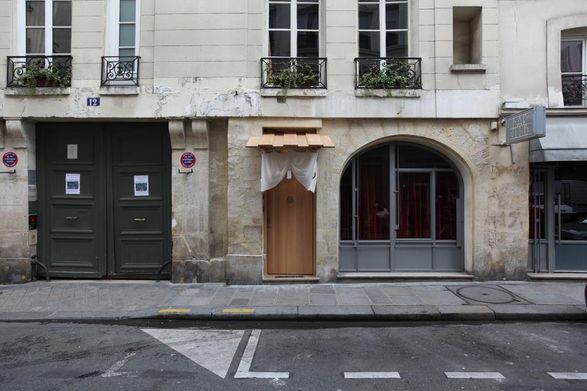ARCHITECTS
Fumihiko Sano Studio
ARCHITECTS
fumihiko Sano/studio Phenomenon
CONCEPT DIRECTION
takeshi Sato / Rightning Paris
RECEPTION / ORIGATA DIRECTION
Keisyousai Ogasawara/ogasawara Ryu Reihou
TOOL DIRECTION
hirotoshi Maruwaka/ Maruwakaya
USAGE
wrapping Shop
CONSTRUCTION
sagara Builder/tsumiki Drawing Builder
ADDRESS
12 Rue Jacob ,paris ,france
WOOD COOPERATION
Higashishirakawa Village Forest Association/higashisirakawa Lumber Cooperative
ITLE
Miwa
CEREMONY FOR SANCTIFYING GROUND
Oomiwa Shrine
FLOORS
1f
ANTIQUE DIRECTION
Shouun Oriental Art
PHOTO
daisuke Shima /nacása&partners Inc
PHOTOS
Nacasa & Partners inc. (14)
STATUS
Built
BUDGET
$100K - 500K
AREA
0 sqft - 1000 sqft
SITE AREA
15.6 M
COMPLETION
11/ 2012
YEAR
2012
LOCATION
Paris, France
TYPE
Cultural › Cultural Center Gallery Pavilion Religious
Origata is the approach showing senders’ hearts through their gifts.
It has been developed since Muromachi era. (around 1330s to around 1500s); moreover, almost two thousands of varieties of styles were established at the end of Edo era. (around 1860s.)
To introduce traditional Japanese culture, we chose to utilize Japanese cypress from Ise Jingu, which is the most lordly shrine in Japan, all over the wall of this shop since it is considered as the most intimate material with Origata.

Shintoism is the binder between origata and Japanese cypress. Origata was originally derived from Shinto rites.
They wrapped up the offerings in a special way when they presented their offerings to the god, and that was the beginning of origata.
These backgrounds ensure Japanese cypress is the most affinitive material with origata.
For a flooring material, the slate stone from Ogata district where the horrible earthquake hit on March 11th, in 2011 was applied.
Even if the earthquake made the slate stone scraps, I believe they could be revivified while I reuse and breathe new life into them.
I hope the reconstruction would be successful in Tohoku area from all my heart as designing this shop by practicing a portion of Tohoku.




























